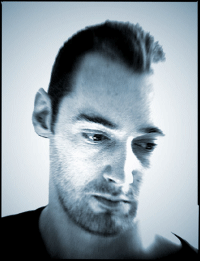According to the DSM, the diagnosis of major depression requires the presence – for two weeks – of at least five possible symptoms out of a list of nine, which include, for example, sadness, loss of interest in usual activities, lowered appetite, fatigue, and insomnia. However, these symptoms can also occur in normal responses to loss and stress. False positive diagnoses occur
 when someone reacting with intense normal sadness to life's stresses is misdiagnosed as having major depressive disorder. Recent studies suggest that a very large percentage of people have such symptoms for two weeks or longer at some point in their lives; therefore, how many of these individuals really are afflicted by a mental disorder or are responding within normal limits to loss or stress has been a matter of debate.
when someone reacting with intense normal sadness to life's stresses is misdiagnosed as having major depressive disorder. Recent studies suggest that a very large percentage of people have such symptoms for two weeks or longer at some point in their lives; therefore, how many of these individuals really are afflicted by a mental disorder or are responding within normal limits to loss or stress has been a matter of debate.Under the 1994 DSM-IV revision the so-called Clinical Significance Criterion (CSC) was added in the hope of avoiding so many false positives. In addition to the two weeks of sadness and other depressive symptoms, a specified minimal "clinically significant" threshold in the form of harm due to distress or role impairment (in occupational, family, or interpersonal contexts) must have resulted from the symptoms in evidence before they could be considered signs of depression.
But Wakefield's new study shows that the Clinical Significance Criterion isn't doing its job of filtering out false positives. This allows Wakefield to bring out another study he did earlier which was largely dismissed because it was undertaken before the CSC was implemented but failed to get published because it was completed just after the new guidelines. One can sense that Wakefield smells blood here!
But this is no mere academic discussion. The diagnostic criteria for depression are remarkably weak; just two weeks of symptoms seems a very short period on which to base a diagnosis which may well lead to medication. Wakefield's criticisms strike me as the same as those against the Beck Depression Inventory (BDI). You can try the BDI yourself, just click here. How depressed do you score compared to how depressed (or not) you are currently feeling?
However, this recent study looked at how often doctors actually use these DSM criteria when making a diagnosis. Nearly 25 percent of the psychiatrists indicated that they used the DSM-IV MDD (major depressive disorder) criteria to diagnose depression less than half of the time. In contrast, more than two-thirds of the non-psychiatrist physicians indicated that they used the DSM-IV MDD criteria less than half of the time when diagnosing MDD. The difference between the psychiatrists' and the non-psychiatrists use of the criteria was significant, but equally pathetic. Many complained that they couldn't remember the full criteria or that they were overly complex. What do these people get paid for?
The best doctor I ever had was surrounded by books and would often dip in to verify something or to pick precisely the right medication. Do you think I was going to complain because he wanted to double-check that he wasn't making a mess of my diagnosis? When was the last time you ever saw a physician open a book, or even consult something online? I feel there is absolutely no excuse for such lack of knowledge and expertise. It makes arguments over the DSM largely irrelevant - perhaps a clearer focus on training doctors, and especially non-psychiatric physicians, would be much better for the mental health of the population.
Press release: Psychiatry's main method to prevent mistaken diagnoses of depression doesn't work: NYU study



Comments